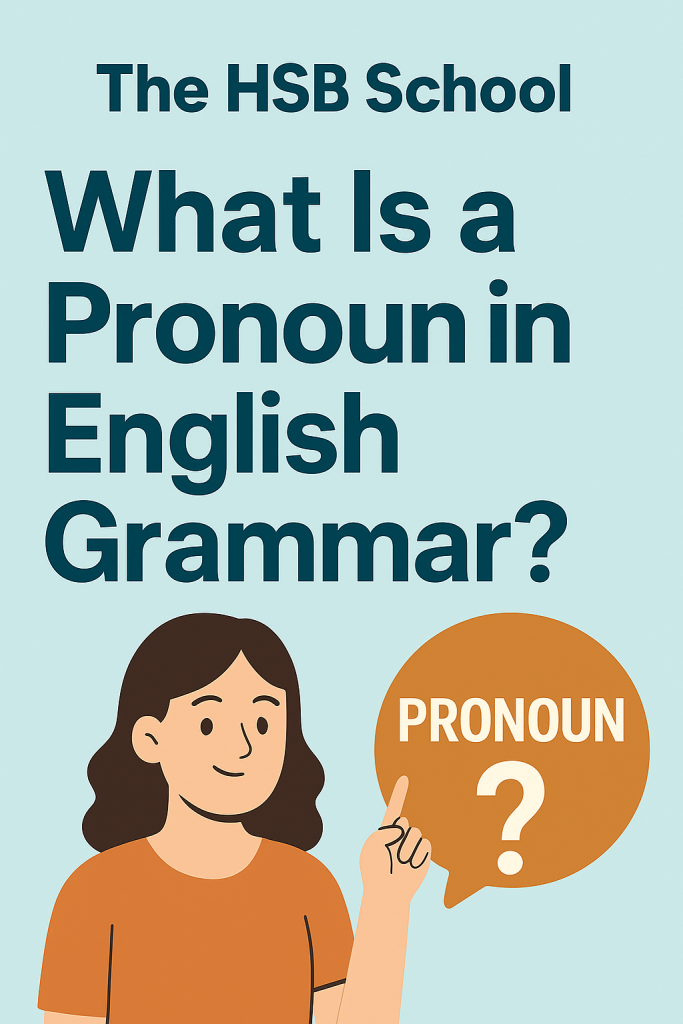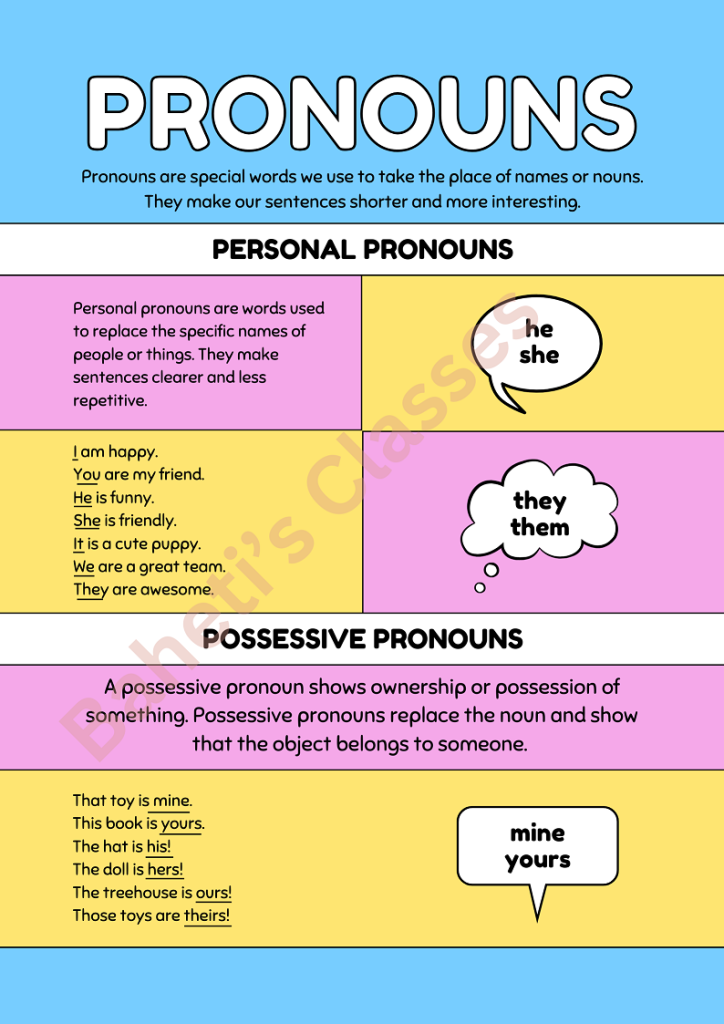What is a pronoun in English grammar? Discover how pronouns replace nouns to avoid repetition. Learn about the different types of pronouns with examples and usage tips in this complete beginner-friendly guide.

Table of Contents
Introduction
Have you ever read a sentence like this?
“Rahul told Rahul’s teacher that Rahul forgot Rahul’s homework.”
Feels repetitive, right?
That’s exactly why pronouns exist — to make our sentences cleaner and easier to read. In this post, we’ll explain what is a pronoun in English grammar, explore its types, see how they work, and learn how to use them correctly.
What Is a Pronoun in English Grammar?
A pronoun is a word that replaces a noun (or noun phrase) to avoid repeating the same word again and again. Instead of using the noun multiple times, we replace it with a pronoun.
Example:
❌ “Neha loves Neha’s cat because Neha feeds Neha’s cat daily.”
✅ “Neha loves her cat because she feeds it daily.”
Here, her, she, and it are pronouns replacing Neha and cat.
So, what is a pronoun in English grammar? It’s a shortcut that makes communication smoother and more natural.
Types of Pronouns with Examples
1. Personal Pronouns
These refer to specific people or things.
- Subject Pronouns: I, you, he, she, it, we, they
“He is watching a movie.” - Object Pronouns: me, you, him, her, it, us, them
“She invited us to the party.”
2. Possessive Pronouns
They show ownership (without using an apostrophe).
- mine, yours, his, hers, ours, theirs
“This laptop is mine.”
3. Reflexive Pronouns
Used when the subject and the object are the same person.
- myself, yourself, himself, herself, itself, ourselves, yourselves, themselves
“He introduced himself.”
4. Demonstrative Pronouns
They point to specific things.
- this, that, these, those
“Those are my shoes.”
5. Interrogative Pronouns
Used to ask questions.
- who, whom, whose, which, what
“Who is at the door?”
6. Relative Pronouns
They connect clauses or phrases to a noun.
- who, whom, whose, which, that
“The girl who sings well is my sister.”
7. Indefinite Pronouns
Refer to non-specific people or things.
- anyone, everyone, someone, nobody, everything
“Someone left their bag here.”
Why Are Pronouns Important?
- ✅ Avoid Repetition
They help keep sentences clean and less awkward. - ✅ Improve Clarity
Makes it easier to follow who or what is being talked about. - ✅ Sound More Natural
Native speakers use them instinctively in conversation.
Common Pronoun Mistakes
- ❌ “She gave the book to I.”
✅ “She gave the book to me.” - ❌ “Your going to love this.”
✅ “You’re going to love this.” - ❌ “It was late.” (What was late?)
✅ Clarify what “it” refers to!
How to Practice Pronouns
- 📌 Spot the Pronouns: Find them in newspaper articles or stories.
- ✍️ Rewrite Sentences: Replace repeated nouns with correct pronouns.
- 🧠 Try a Quick Quiz:
“__ is my best friend.” (She/Her)_
✅ Answer: She
Final Thoughts
Now that you’ve learned what is a pronoun in English grammar, you’ll start noticing them everywhere! These small but powerful words help improve clarity, reduce repetition, and make your English sound more fluent and natural.
Whether you’re a student, teacher, or just brushing up your grammar, understanding pronouns is a key step toward mastering the language.

Hay do you want to learn about Conjunction.
